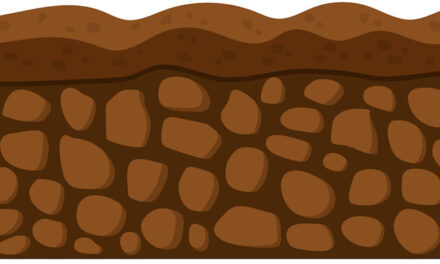God gave us evil against our free will to correct and perfect us. If we seek perfection, we learn to avoid evil (Job 1:1). Evil must exist even if it is nothing more than a product of our imagination. Christ said, it is a must that we be offended (Matthew 18:7). The Father said, “to depart from evil is understanding (Job 28:28). Christ taught us everything we need to know about the tutelage of evil.
Christ taught us the tutelage of evil saying, for everyone shall be salted with fire, and every sacrifice shall be salted with salt. Salt is good, but if the salt has lost his saltness, with what will you season it? Have salt in yourselves and have peace one with another (Mark 9:50). Christ said that we are to be seasoned and preserved by fire. Evil and fire are one in the same because they destroy when they are not contained in their appropriate place.
The Father uses salt to season us the same way we use pain to season our child. The scripture teaches us do this saying, “foolishness is bound in the heart of a child; but the rod of correction shall drive it far from him” (Proverbs 22:15). We may tell our child to do chores to teach responsibility. A child may become emotionally upset because he doesn’t feel like doing it. We then must punish the child with something worse than doing the dishes to season him.
Christ also considered how our seasoning from the Father could cause us to become hard-hearted saying, “Every sacrifice shall be seasoned with salt”. To season our sacrifices with salt means that we forgive those who have trespassed against us when we ask of the Father. We must do this to suppress evil by not letting it make us hard-hearted. When we are hard-hearted, we become iniquitous. Our iniquity only furthers the fiery consumption evil.
Christ said, “if the salt has lost his saltiness, with what will you season it?” If the salt that is used to season us has no effect, Christ asked, what then will have an effect? The evident answer to the question is more salt or a worser offense. When Lot and his wife fled the evil city of Sodom, the Father told them not to look back. This should have been easy for them if they had been seasoned by the evil in the city. Lot’s wife was not seasoned by the salt, so she looked back. The Lord then turned her into a pillar of salt.
Finally, Christ said, “Have salt in yourselves and peace with another”. Christ commanded us to compartmentalize our experiences with evil. We have to be careful not to create a resolve that contradicts the Law of God. We may have an experience where someone takes our kindness for weakness. Christ taught us to keep our salt and avoid that person, but not to repent from being kind. A resolve to repent from being kind places a stone in our heart. Stones in our heart prevent the word of God from taking root (Matthew 13:20). Many of us have to reap the reward the word of God provides to develop our emotional alignment with it. Our kindness can lead us to good relationships. This will cause us to become more emotionally aligned with the commandment to keep our salt but have peace with one another.
When we have gained good relationships, someone taking our kindness for weakness will not be enough to cause us to repent from being kind. This is why certain environments cause our hearts to become harder than others. In some environments, we are more likely to find friends with kindness, but in other environments our kindness may be taken for weakness more often. In this scripture, Christ taught us how we are to learn from the evil we experience.



